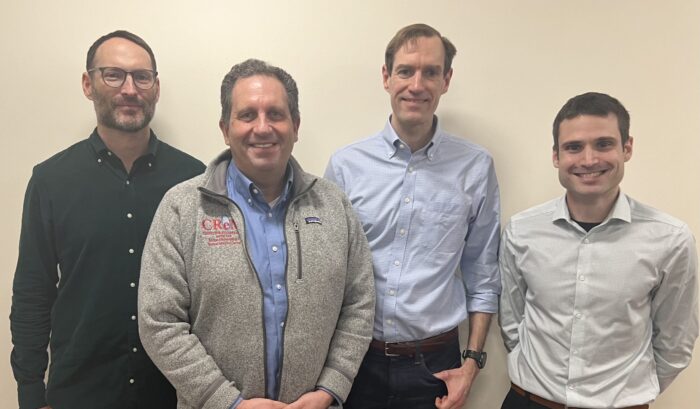Researchers Awarded $14 Million to Better Understand, Treat Genetic Lung Diseases
A team of researchers led by Darrell N. Kotton, MD, the David C. Seldin Professor of Medicine, has been awarded a five-year, $14 million grant from the NIH’s National Heart, Lung, and Blood Institute (NHLBI) for his research, “Developing Pluripotent Stem Cells to Model and Treat Lung Disease.”
Lung diseases, such as those caused by gene mutations, result in significant morbidity and mortality worldwide. The advent of stem cell discoveries and regenerative medicine presents new opportunities to improve the understanding of these diseases and to develop new treatment approaches.
The new award will fund an integrated, multi-investigator program project grant where four interacting labs headed by four physician-scientists, all located in the Center for Regenerative Medicine (CReM) of Boston University and Boston Medical Center, will develop next generation stem cell-based therapies for currently incurable genetic lung diseases affecting children and adults, including childhood and adult interstitial lung diseases, an inherited form of emphysema, cystic fibrosis and primary ciliary dyskinesia.

The four physician-scientists heading each lab include Kotton together with Professor of Medicine, Andrew A. Wilson, MD, Associate Professor of Medicine, Finn Hawkins, MBBCh, and Assistant Professor of Medicine, Kostas Alysandratos, MD, PhD. The four teams have worked closely together for several years on stem cell-based approaches for treating lung disease, including throughout the pandemic when they famously shared their stem cell bank with researchers across the world to develop new models for understanding and treating COVID-19.
“While it is hard to envision a more optimistic time in health-related research, treatments for many devastating lung diseases have not yet been realized, and clinical therapies in many cases still largely focus on treating symptoms,” says Kotton.
For the new project, Kotton and his teams have developed reprogramming methods to generate induced pluripotent stem cells (iPSCs) from patients and have applied these methods to produce the largest known bank of lung disease-specific iPSCs. Having established these stem cell banks and protocols, Kotton now is focused on applying these resources to advance their mechanistic understanding of how gene mutations initiate airway and alveolar epithelial dysfunction resulting in disease. They seek to intervene with precision therapeutics or regenerative cell therapies. According to Kotton, they will focus initially on ameliorating or curing genetic lung diseases of the airway and alveoli, given that their proximal disease-driving gene mutations are well described.
“The researchers on this new project are not new to this mission, for they have worked together for many years in juxtaposed labs, publishing an extensive literature that provides a solid foundation upon which to now launch a concerted effort to move our field from basic discovery to therapeutic development,” said Kotton.
Kotton is an Allen Distinguished Investigator and an elected member of the American Society of Clinical Investigators and Association of American Physicians. He leads a basic research laboratory, continuously funded by the NIH since 2004 and serves on the NHLBI’s Board of External Experts. He is the recipient of the American Thoracic Society’s Recognition Award for Scientific Accomplishments (2018), the AAMC inaugural national Research Resources Sharing Award (2017), the Alpha-1 Foundation’s Researcher of the Year (2013) and Shillelagh (2010) awards, Boston University’s Graduate Medical Sciences Educator of the Year Award (2018), and the Robert Dawes Evans Senior Research Mentor Award from Boston University.